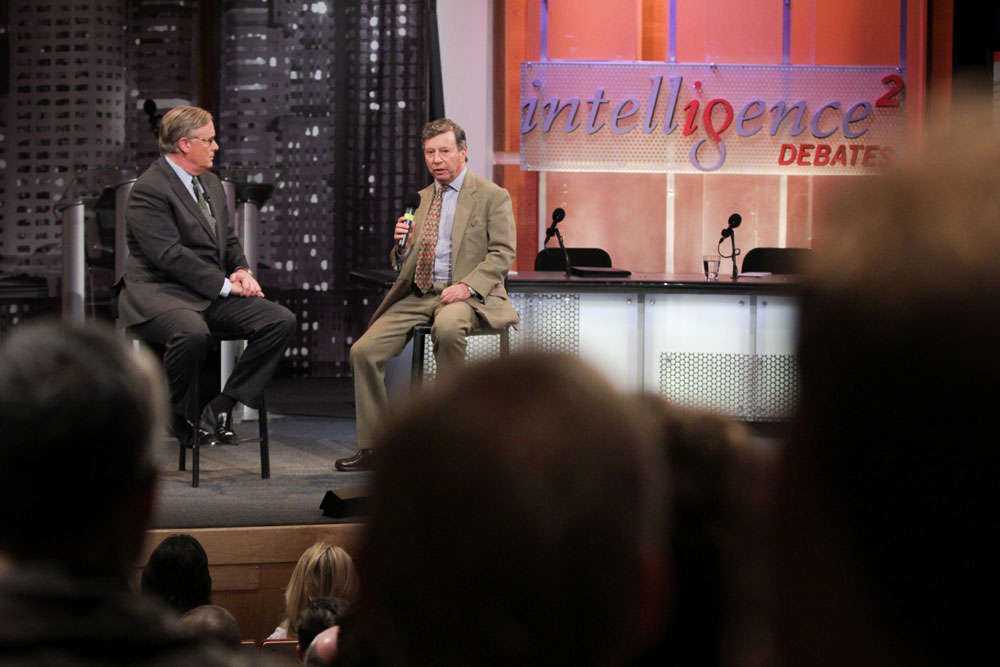In November 2013, I introduced and framed the Intelligence Squared U.S. debate on the Second Amendment. The world was very, very different when this amendment was passed. Let me start by just sort of saying what this debate is and is not about.
Let me start by just sort of saying what this debate is and is not about. It’s not about whether the Second Amendment should be repealed. That’s just a political impossibility. And it’s not about whether the Second Amendment gives us an individual right to bear arms. The Supreme Court has decided that. So this is more of a debate about the historical context of the amendment itself and whether it has outlived its usefulness.
John Donvan: And we always begin these debates by having a brief conversation with the chairman of Intelligence Squared U.S. who brought this all to us. And what we do is we talk about the relevance of this debate right now. And the relevance is staring us in the face. So, Bob, we’ve done debates on gun control issues before. We did a debate where the motion was Guns Reduce Crime. We’re visiting it again, but we’re phrasing it specifically a different way. Why is that?
Robert Rosenkranz: Well, let me start by just sort of saying what this debate is and isn’t. It’s not about whether the Second Amendment should be repealed. That’s just a political impossibility. And it’s not about whether the Second Amendment gives us an individual right to bear arms. The Supreme Court has decided that. So this is more of a debate about the historical context of the amendment itself and whether it has outlived its usefulness.
John Donvan: And the team that’s arguing for the motion, in terms of putting it in historical context and reflecting changing times, in fact, I’m assuming that’s what they’re going to be arguing.
Robert Rosenkranz: Well, the world was very, very different when this amendment was passed. It was a world in which state militias were relevant. It was a world in which there were no professional police forces so that the only kind of defense against violence was self-defense, and it was a world in which it was plausible to think that an armed citizenry was a bulwark against tyranny. We had just been through the Revolutionary War, after all.
John Donvan: And in what ways has the world changed that might make that irrelevant now?
Robert Rosenkranz: Well, those who see the amendment as rooted in an historic anachronism are going to feel like we should have the most restrictions we can against gun ownership that the constitution would permit. The other side is going to say no, this is not a historic anomaly at all. This amendment enshrines the ability of Americans to defend their security at home, and 47 percent of all Americans do have guns at home and see it as essential to their — the security of themselves and of their families and those people feel very strongly that this is an amendment that embodies values, such as self-reliance, such as independence, and such as kind of collective responsibility for public order that the founders embraced and which they embrace, too, and which are relevant to this day.
John Donvan: And our four debaters have really — some of them have been living this topic for a long time and, as you’ll learn, they’ve been ground — they’ve provided some of the groundbreaking thought between — behind how some of this has actually been argued in the courts. They’ve actually been players in this debate for some time. So, Bob, thank you very much for bringing this and bringing them to the stage, and let’s welcome them to the stage now.
Watch the full debate and learn more from Intelligence Squared U.S.




